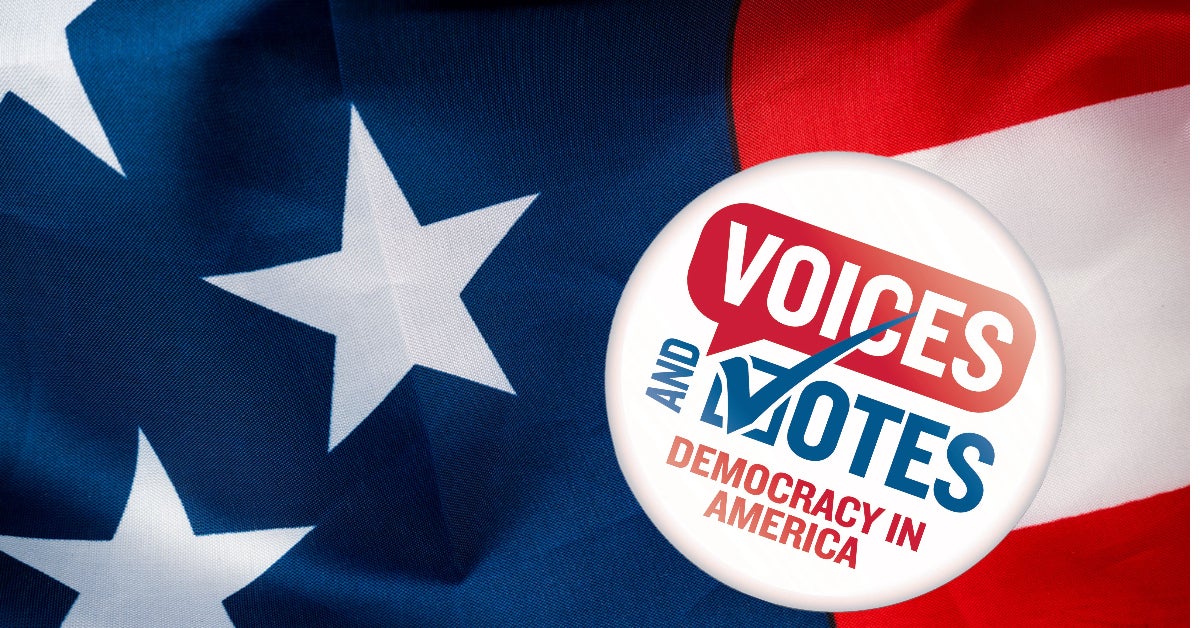Dr. Rebecca Tuuri to Discuss Vicksburg’s Role in Voting Rights Movement on Jan. 7
Published 10:39 am Wednesday, January 4, 2023
By Jim Beaugez | Guest Contributor
Vicksburg’s role in the U.S. voting rights movement will take center stage at Catfish Row Museum this Saturday during a presentation by history professor, author and scholar Dr. Rebecca Tuuri.
On Jan. 7 at 2 p.m., Tuuri, co-director of the Center for the Study of the Gulf South and associate professor of history at the University of Southern Mississippi, will speak on “Democracy in Mississippi: Race, Violence and Power in the Struggle for the Vote.” The event is linked to the Smithsonian-curated “Voices and Votes: Democracy in America” exhibition, which closes at the museum on January 20.
While the Smithsonian exhibition centers on voting on a national scale, only briefly touching on Mississippi during the Civil Rights Movement, Tuuri’s role is to contextualize the exhibit for the state.
“My talk gives a broad sweep of the history of democracy in Mississippi,” she says, “but because I have expertise in African American history, most of the talk is really centered around Black Mississippians’ efforts to secure freedom, but then also to get the right to vote once free.”
Events that happened in Vicksburg and neighboring areas such as Natchez will be the main focus of her presentation. Freedmen camps in Vicksburg during the Civil War, for example, laid the foundation for leadership among Black men, who first gained the right to vote with the passage of the 15th Amendment to the U.S. Constitution in 1870, during the Reconstruction era.
Hiram Revels, the first Black senator to serve in the U.S. Congress, is one of the connections between the two river cities. He fought for the Union at the Battle of Vicksburg, and later became a pastor in Natchez, a position that led him to the Mississippi Legislature and eventually Congress, where he served from 1870 to 1871.
Revels advocated for equality during his brief Senate tenure, but racial tensions continued to escalate at home. In December 1874, white mobs clashed with groups of Black men who supported Peter Crosby, the first Black Sheriff of Warren County, in and around the city. Federal support took weeks to arrive, by which time between 150 and 300 Black men had been killed in the conflicts.
The Vicksburg Massacre, and a similar conflict in Clinton the following year, helped set the stage for the passage of a new state constitution in 1890, which disenfranchised African Americans and ushered in the Jim Crow era in Mississippi. Seventy-five years later, the Voting Rights Act of 1965 finally outlawed discriminatory voting practices such as literacy tests in the U.S.
“A lot of my talk is about the heroic efforts of people,” she says, “but also it’s a cautionary tale for folks to be aware that democracy needs to continually be protected, even up until the present day.”
In March, Tuuri will be honored by the Mississippi Humanities Council as one of the winners of its 2023 Public Humanities Awards for her work with the “Voices and Votes: Democracy in America” exhibition. She is also a member of the council’s speaker’s bureau and serves on the scholars’ committee for the Mississippi Freedom Trail and the More Perfect Union project.
The exhibit, which opened on Nov. 14 at Catfish Row Museum, brings clarity to the struggles at the heart of the ballot process. The exhibit is based on the National Museum of American History’s broader “American Democracy: A Great Leap of Faith” exposition.
The multimedia, interactive Voices and Votes exhibition tells the story of voting in America through historical and contemporary photos, educational and archival videos, and engaging games. Historical pieces including campaign souvenirs, voter memorabilia and protest materials are also part of the program.






